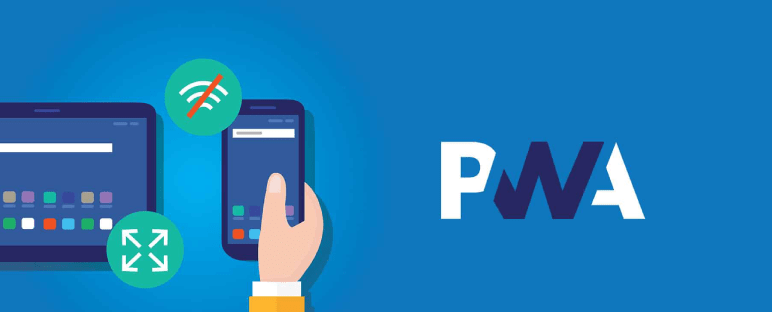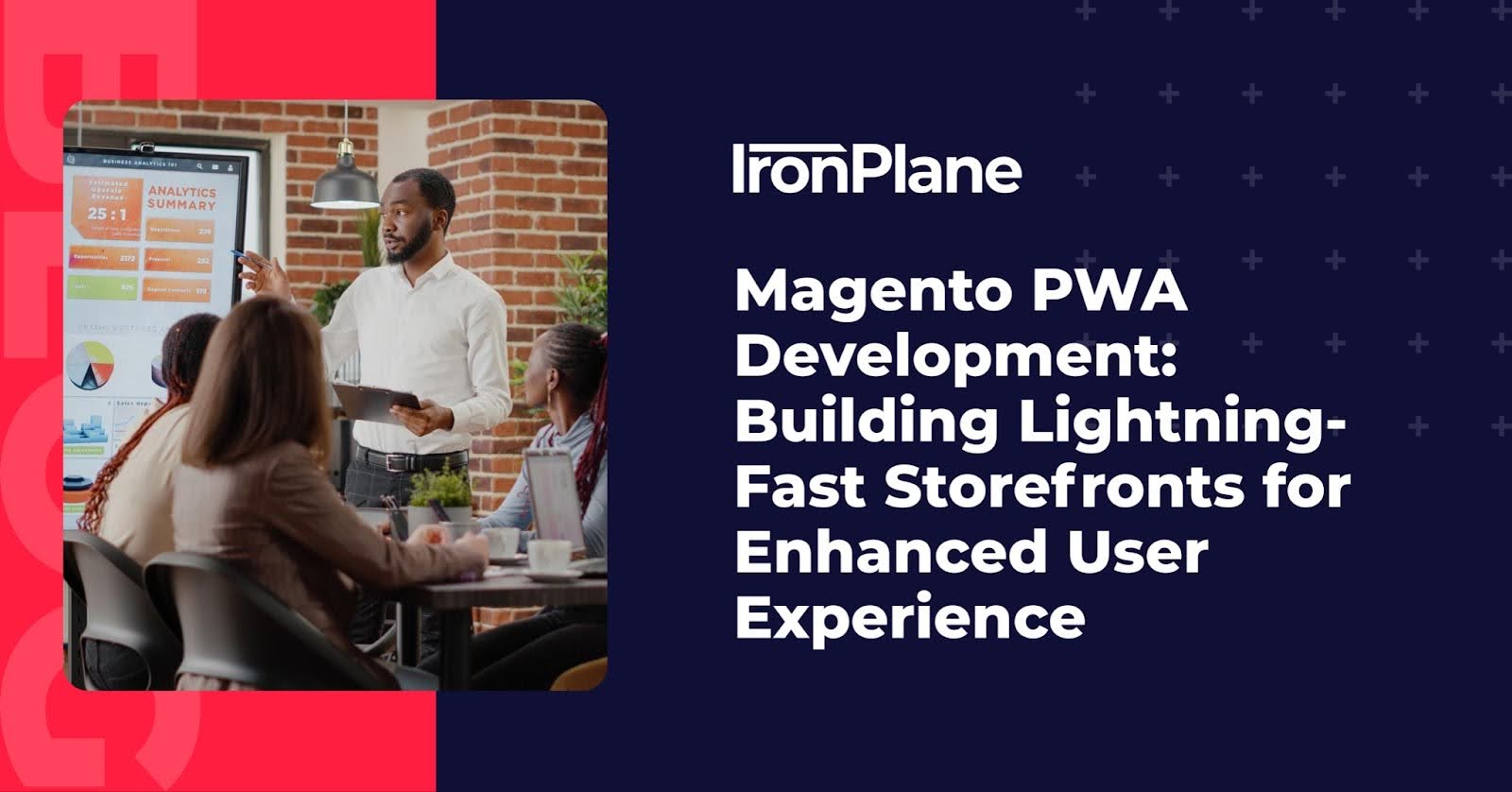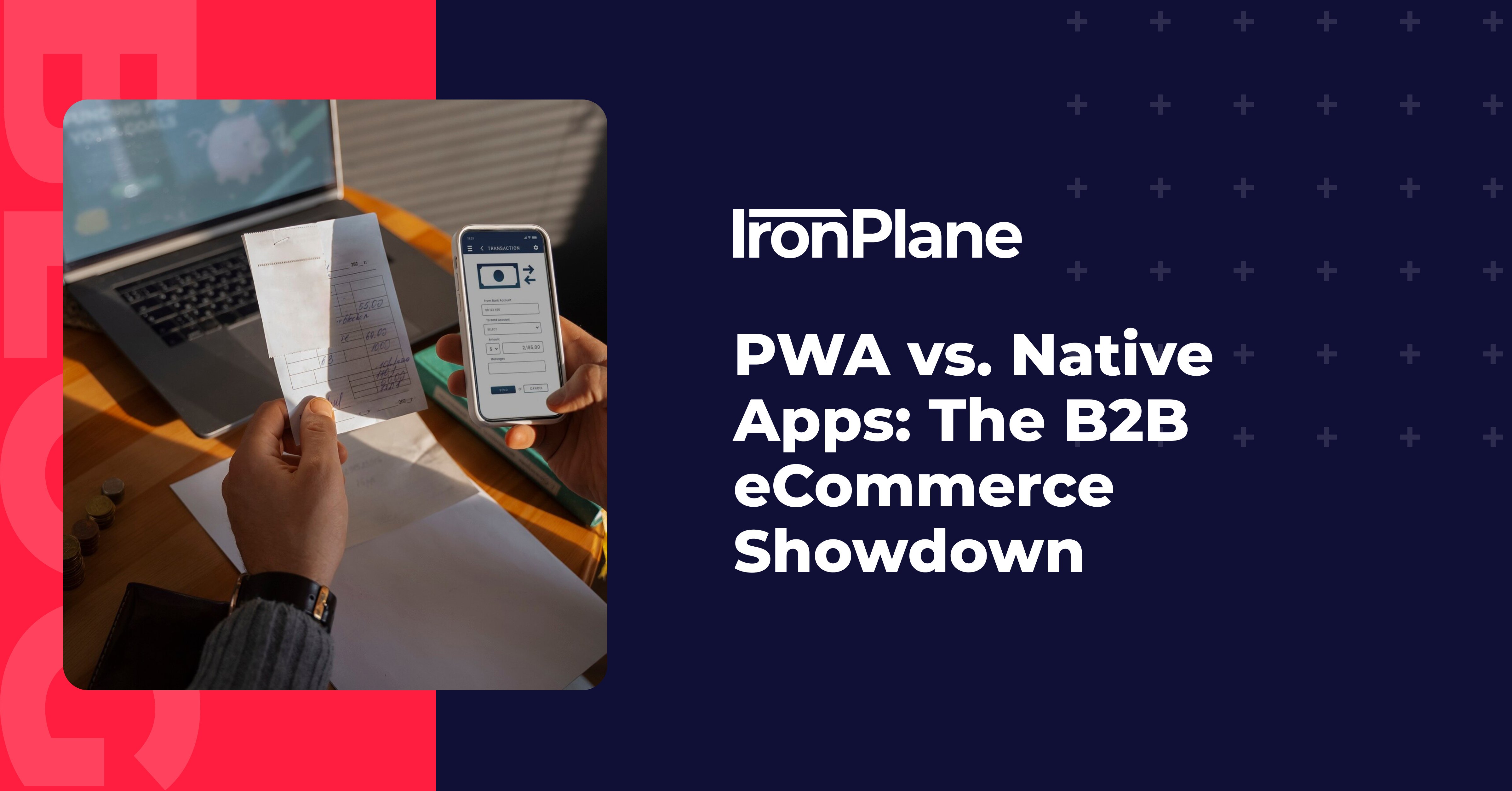Progressive Web Apps: What They Are and Why You Should Be Using One
PWAs were first developed in 2015 to combine the best properties of native apps and traditional mobile sites.

Progressive Web Apps (PWAs) are, for practical purposes, websites that adapt to the devices they are being viewed on. For people using computers, they behave as expected on web browsers, whereas for people using mobile devices the experience is more like that of an app.
On mobile devices, there is no app to download; an icon appears on the screen, providing access to the website the PWA is linked to.
PWAs cache specific functional elements and resources, making it possible for the user to continue using the app even in the event of an interruption of the internet signal. This extended functionality is limited — however, it improves the UX dramatically.
Another exciting thing about PWAs is that, because they are not native apps but are more like web links, they are discoverable, so good SEO should allow your potential customers to come across them quickly. Integrations for push notifications are easy to set as an added value of this technology.
Additionally, PWAs work in full-screen mode — getting rid of the upper and lower frame of a typical browser — which further improves the user experience by removing all distractions. Here are a few other major benefits of PWAs for your eCommerce store.
One of the standout features of PWAs is their ability to deliver push notifications directly to users' devices. This feature allows eCommerce businesses to engage with their customers in real-time, sending personalized updates, promotions, and alerts. Unlike traditional websites, PWAs enable businesses to re-engage users even when they are not actively browsing the site, cultivating customer loyalty.
As mentioned above, PWAs are designed with user experience in mind. They load quickly, provide smooth and responsive interactions, and offer a native app-like feel. This improved user experience translates to higher customer satisfaction and increased time spent on the site.
We also mentioned search engine optimization (SEO) earlier, which is crucial for eCommerce success. PWAs have fast loading times, mobile-friendliness, and enhanced performance, all of which contribute to higher search engine rankings. Google, for instance, prioritizes websites that are mobile-friendly and have fast load times, which align perfectly with PWA characteristics.
Conversion rate optimization is a top priority for eCommerce businesses. PWAs can help boost conversion rates by reducing friction in the buying process. The improved speed and reliability of PWAs can significantly reduce cart abandonment rates.
To illustrate the power of PWAs for eCommerce, let's take a look at some inspiring examples of businesses that have embraced this technology.
Amazon, one of the world's largest eCommerce platforms, utilizes a PWA to provide a seamless shopping experience. Their PWA loads quickly, offers offline access to product listings, and delivers push notifications for order updates and promotions.
Alibaba, a global leader in eCommerce, has adopted a PWA to cater to its massive user base. The PWA ensures a smooth shopping experience, even on slower networks, and allows users to add products to their carts effortlessly.
Flipkart, India's largest eCommerce marketplace, relies on a PWA to reach customers across the country. The PWA delivers a fast and engaging shopping experience, contributing to increased user retention and conversions.
Lancôme, a well-known cosmetics brand, implemented a PWA to enhance the shopping experience for its customers. The PWA offers a visually appealing and user-friendly interface, making it easier for users to explore and purchase products.
If you're considering implementing a PWA for your eCommerce business, here are some of the best solutions available:
PWA Studio, developed by Adobe, is a powerful tool for creating Progressive Web Apps if you're using Adobe commerce or Magento Open Source. It provides a set of tools and libraries to build highly customizable PWAs that integrate seamlessly with Magento stores.
Deity is a PWA solution that offers a flexible framework for eCommerce businesses. It allows businesses to create unique and high-performance PWAs while maintaining full control over the frontend. One major bonus of the platform is using one codebase for both its web and native apps, allowing you to create unified experiences.
Vue Storefront is an open-source PWA framework specifically designed for eCommerce. It offers a modular and scalable architecture, making it suitable for businesses of all sizes. Vue offers an open-source frontend library, 30+ out-of-the-box extensions, and its own hosting platform.
Related Read: The 8 Best Enterprise eCommerce Platforms on the Market
While PWAs have gained popularity in the eCommerce industry due to their benefits, they come with their own set of security concerns. It's essential for eCommerce businesses to be aware of these security concerns and take proactive measures to ensure the security of both their customers and their data.
Concern: eCommerce platforms handle tons of sensitive customer data, including personal information, payment details, and order history. If not properly secured, this data can be vulnerable to breaches.
Mitigation: Implement robust encryption protocols such as HTTPS to ensure data transmission between the PWA and the server is secure. Utilize strong authentication mechanisms, access controls, and regularly update security patches to protect against data breaches.
Concern: XSS attacks involve injecting malicious scripts into web applications, which can compromise user data and privacy. PWAs can be susceptible to XSS attacks if not adequately protected.
Mitigation: Employ security best practices, such as input validation and output encoding, to prevent XSS vulnerabilities. Regularly scan your PWA codebase for potential vulnerabilities and use Content Security Policy (CSP) headers to mitigate risks.
Concern: PWAs allow users to access content offline by caching data locally. While this is a valuable feature, it can also pose a security risk if sensitive data is stored on the device without adequate protection.
Mitigation: Implement secure storage practices for offline data, such as encryption and data obfuscation. Consider using techniques like expiration policies to automatically clear cached data after a certain period.
Concern: Phishing attacks aim to trick users into revealing sensitive information by impersonating a legitimate website or service. PWAs, if not adequately protected, can become targets for such attacks.
Mitigation: Implement anti-phishing measures such as domain verification, email authentication, and user education to help users recognize and report phishing attempts.
Although this emerging technology shows great potential, there are still some issues to be taken into account, when determining whether it is the best option for your business. If your customers need to interact with your website often or continuously, thus requiring an active internet connection at all times, PWAs may not be a solution for you.
The decision to invest in a PWA for your eCommerce store is a strategic one that can result in substantial benefits. PWAs offer improved user experiences, enhanced performance, and increased customer engagement, all of which can translate into higher conversion rates and customer satisfaction. However, it's crucial to weigh the advantages against the associated development costs and security considerations. For businesses committed to delivering a seamless and responsive shopping experience, a well-planned PWA investment can be a valuable asset.

PWAs were first developed in 2015 to combine the best properties of native apps and traditional mobile sites.

In the fast-paced world of eCommerce, delivering an exceptional user experience is paramount. With the rise of mobile shopping, businesses need to adapt their strategies to cater to the needs of tech-savvy consumers.

B2B eCommerce businesses have to choose between Progressive Web Apps (PWAs) and Native Apps. Let's compare them to help you decide what's best for your company.